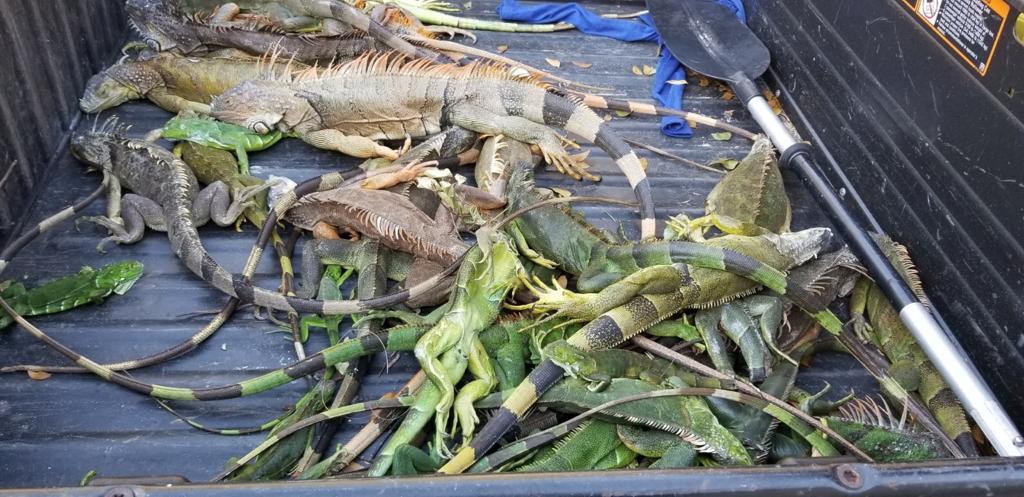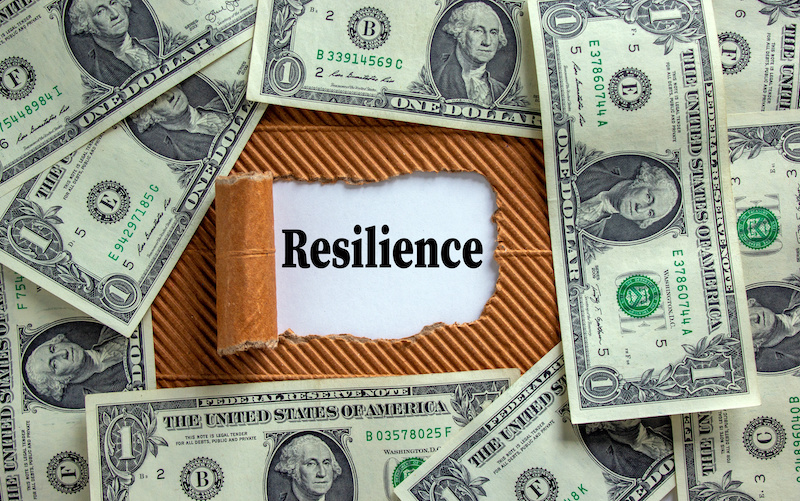Cold-stunned Iguanas Falling from Florida Trees
January 22, 2020

The Village of Key Biscayne collects frozen iguanas stunned by the cold on Tuesday night. (Photo courtesy of Village Public Works Director Jake Ozyman)
MIAMI (AP) — The National Weather Service routinely warns people about falling rain, snow and hail, but temperatures are dropping so low in South Florida the forecasters warned residents Tuesday about falling iguanas.
“This isn’t something we usually forecast, but don’t be surprised if you see Iguanas falling from the trees tonight as lows drop into the 30s and 40s. Brrrr!” NWS Miami tweeted.
On Wednesday morning, Key Biscayne Director of Public Works Jake Ozyman said his team had been collecting frozen iguanas from around the island.
“We called a company to come pick them up and dispose of them properly,” he added.
The low temperatures stun the invasive reptiles, but the iguanas won’t necessarily die. That means many will wake up as temperatures rise.
Iguanas aren’t dangerous or aggressive to humans, but they damage seawalls, sidewalks, landscape foliage and can dig lengthy tunnels. The males can grow to at least 5 feet long and weigh nearly 20 pounds.
Female iguanas can lay nearly 80 eggs a year, and South Florida’s warm climate is perfect for the prehistoric-looking animals. Iguanas are native to Central America, tropical parts of South America and some Caribbean islands.
Iguanas are allowed to be kept as pets in Florida but are not protected by any law except anti-cruelty to animals. They’ve been in South Florida since the 1960s, but their numbers have increased dramatically in recent years.
Key News’ Annali Hayward contributed to this report. This story has been updated.


